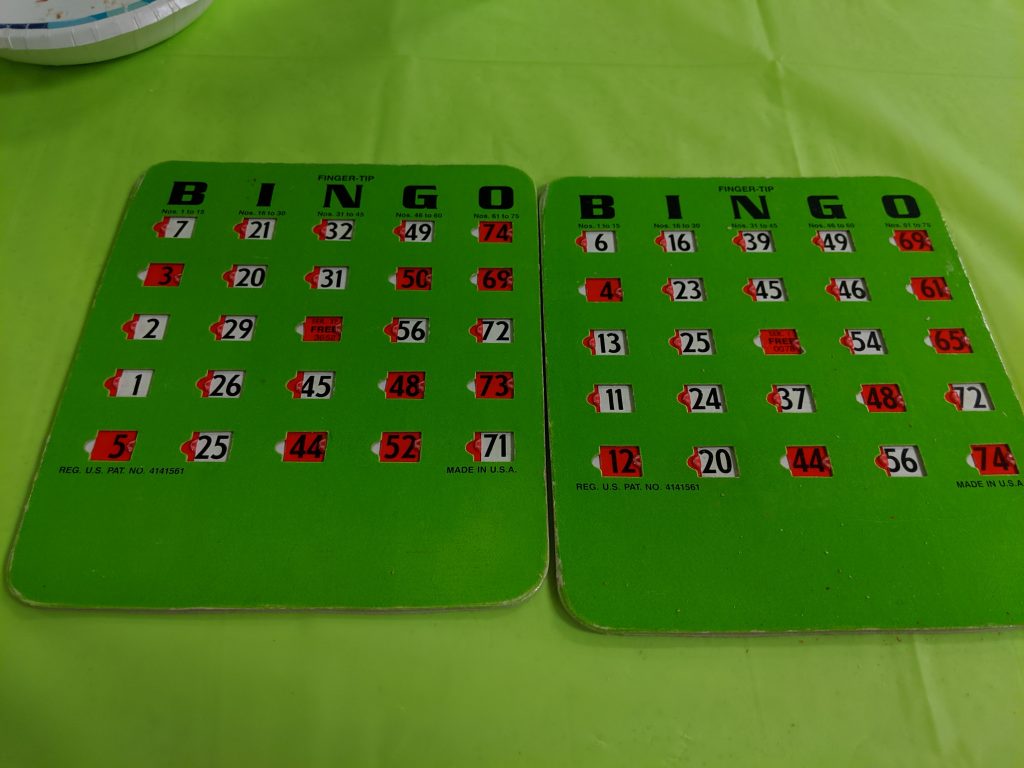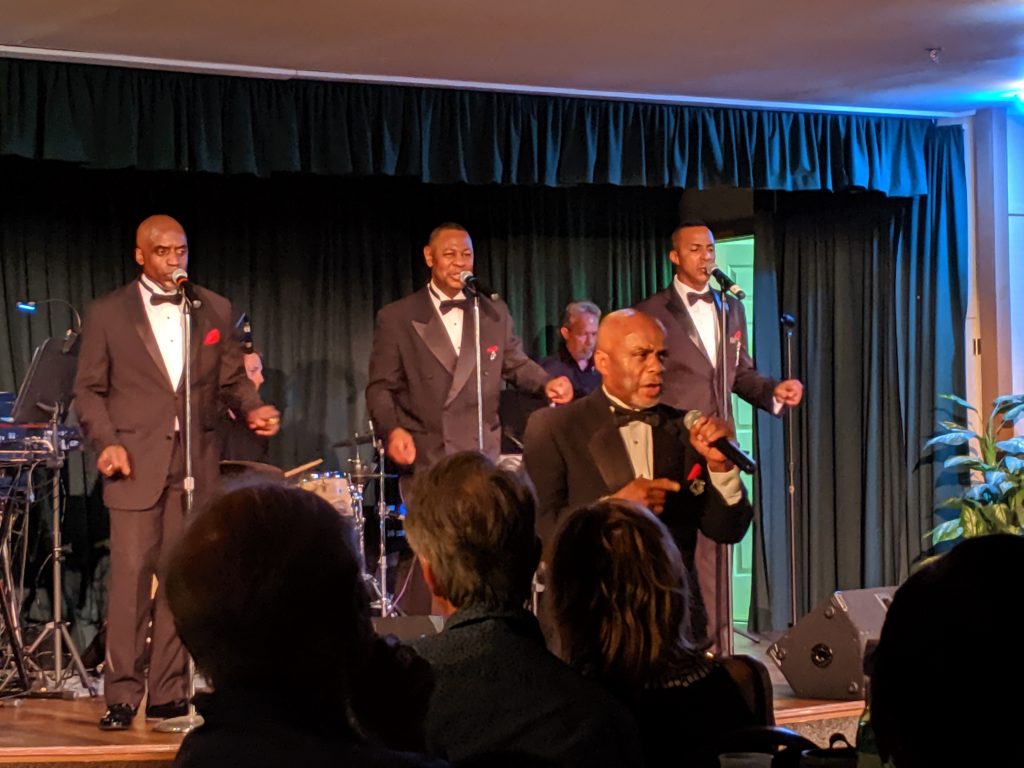Why does no one understand the meaning of the fasten seatbelt sign?
Last Updated
MapCalifornia here I come.
Harvest Festival
JetBlue
189
-
Departs: JFK
-
Arrives: SAN
JetBlue
514
-
Departs: LGB
-
Arrives: JFK
Start:
End:
Bingo time… excitement galore.
Hanging around here for the next few weeks.
IndieWebCamp NYC 2019 is a two-day maker event for creating and/or improving your personal website. All levels welcome! One of several 2019 IndieWebCamps and the seventh IndieWebCamp in NYC!
Rules for Bughouse Chess
Since I was writing about trying Four Player Chess, I wanted to note a four player variant I did play as a kid. Bughouse.
Bughouse involves 2 chess boards
- Teammates sit beside each other playing opposite colors
- Whenever a piece is captured, it is given to their teammate.
- Teammates can use a move to place the piece on an unoccupied square.
- Pawns cannot be placed on the ends of the board.
- The first person to lose by checkmate or time loses for the team.
- Bughouse is usually played with chess clocks.
- When played without a clock, there is usually a rule preventing a player waiting for pieces (stalling or sitting) indefinitely. One rule states that players may not delay their move beyond the time that it takes for their partner to make three moves
- There is no specific rule against verbal coordination.
Four Player Chess
Recently, I came across the idea of four player chess and decided I wanted to give it a try.
Four Player Chess is played with a standard board with an extra 3×8 section on each side. There are no official rules. Here are my notes based on a little research.
- 4 Player Chess can be a partnership game, where the object is to checkmate both opposing players at the same time.
- In other variants, you can have partnerships, every player for himself, or temporary alliances.
- Turns move in clockwise order.
- Queens must be placed on the same color..usually white
The most well known 4 player chess was created by Capt George Hope Verney in 1881. There is a copy of his book on the subject here…
- Option 1 – Verney’s original rules for 4 handed chess
- The players who are opposite each other become partners
- No communication is permitted between the partners.
- The pieces of partners do not attack each other, therefore, their Kings can even be next to each other.
- No player can make a move to place his partner in check
- Castling is not permitted
- Pawns can only move one square at a time, not 2 on the first move as in normal chess
- For a pawn to become a Queen, it must reach the edge of the board of one of its enemies, not its partner.
- When a pawn reaches the edge of the board of its partner, it may reverse direction until it reaches the end of its own side…after which it may do so again. It should be marked somehow appropriately.
- The game is won when two of the partners are checkmated.
- When one partner is checkmated, his pieces are not removed from the board, but remain in position. His partner continues the fight singlehanded, while the player misses his turns. His pieces cannot move or be captured, they merely block the board.
- A partner can release his partner from checkmate by capturing pieces or forcing their move by the opponent.
- An opponent, having checkmated a player, can release him, but cannot capture other pieces in the same move.
- Option 2 – Hughes 1888 Variant. All of Verney’s rules except:
- Pawns may advance two squares initially.
- When a pawn’s move is obstructed by a pawn of its partner, it can leap over it, provided the square it moves to is vacant
- Option 3- Variant of prior options where your partner is next to you, rather than opposite.
- Option 4 -A Non-Partner Variant
- Castling and en-passing are permitted. All standard chess rules, except as follows:
- A player’s king must actually be captured to eliminate the player.
- A player may move into a potential checkmate
- A checkmated player may move any of his pieces
- An eliminated player’s remaining pieces stay stagnant on the board (default), but may be captured.
- Pawns can be exchanged for another piece on reaching any end row (ahead, or to the side).
- The last king standing is the winner, or the last two kings standing if they declare a truce or an alliance (unless one of them decides to eliminate the other.)

